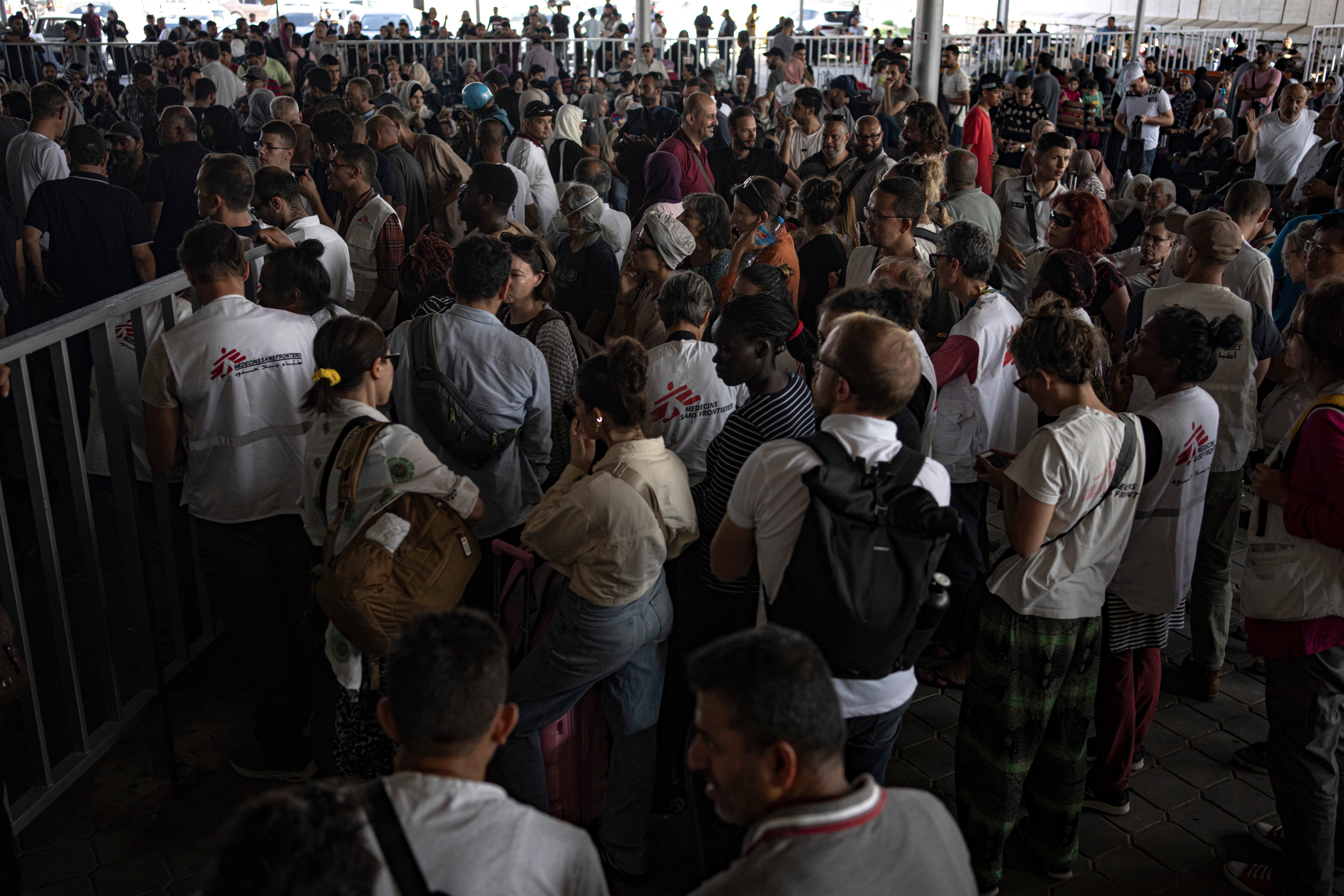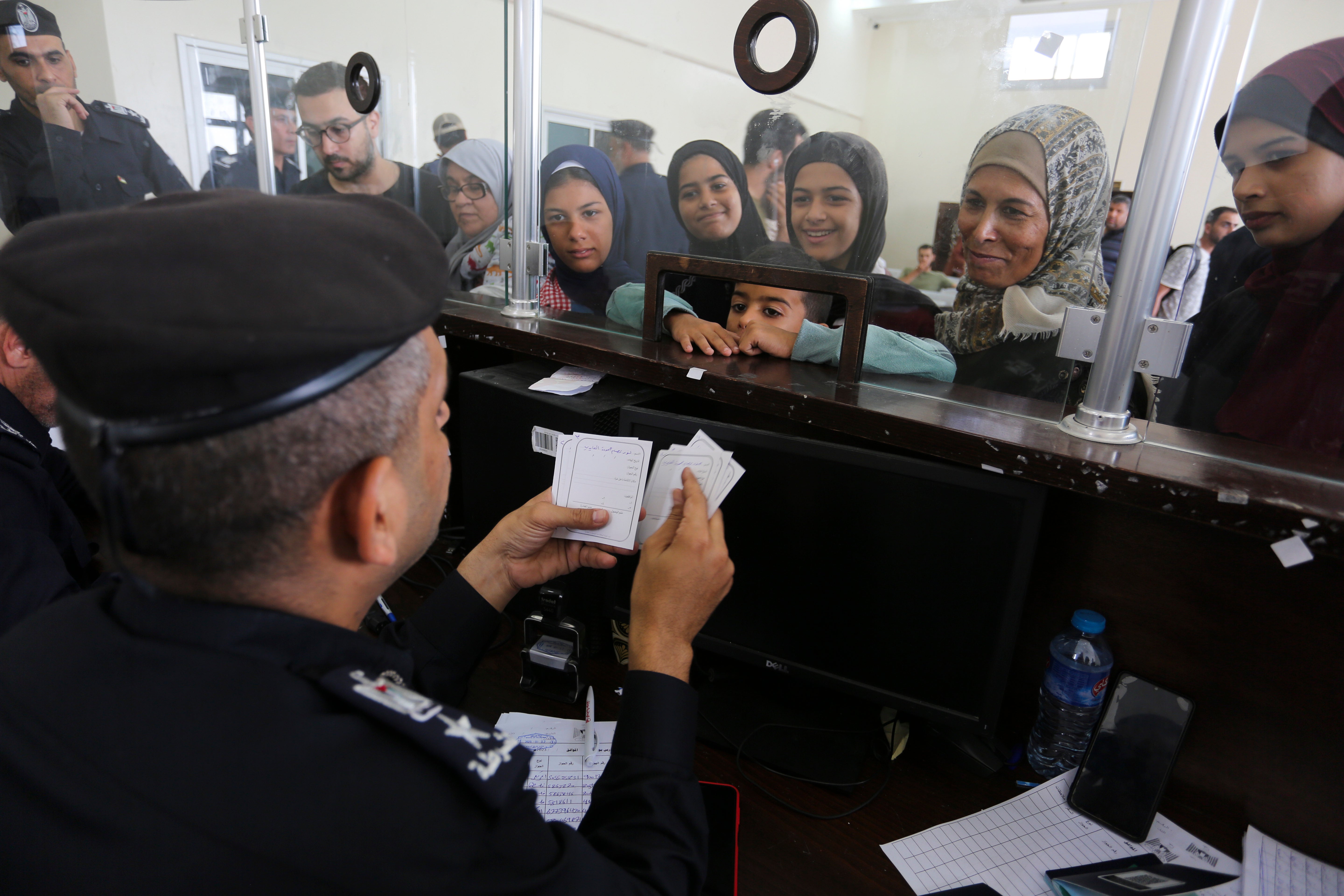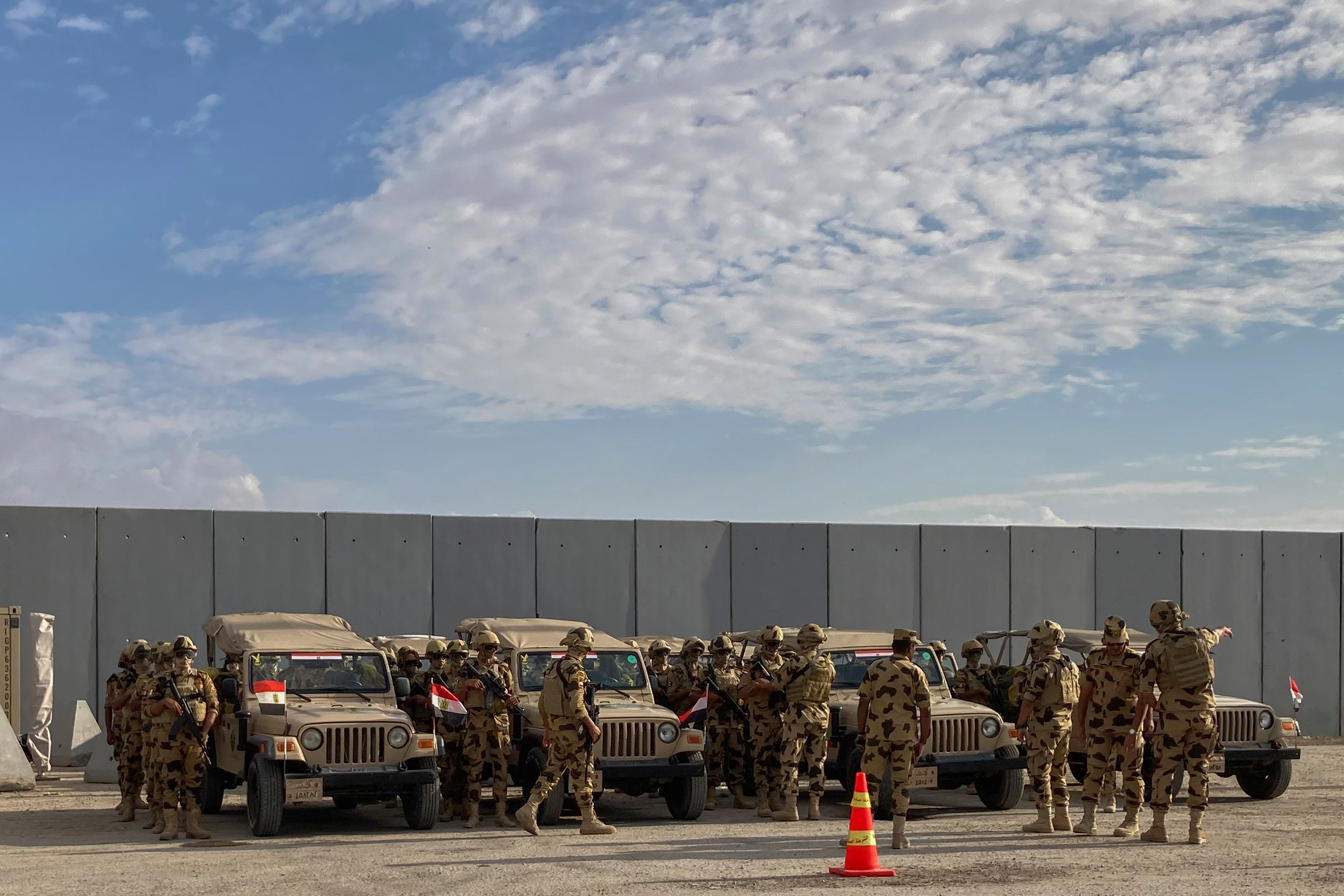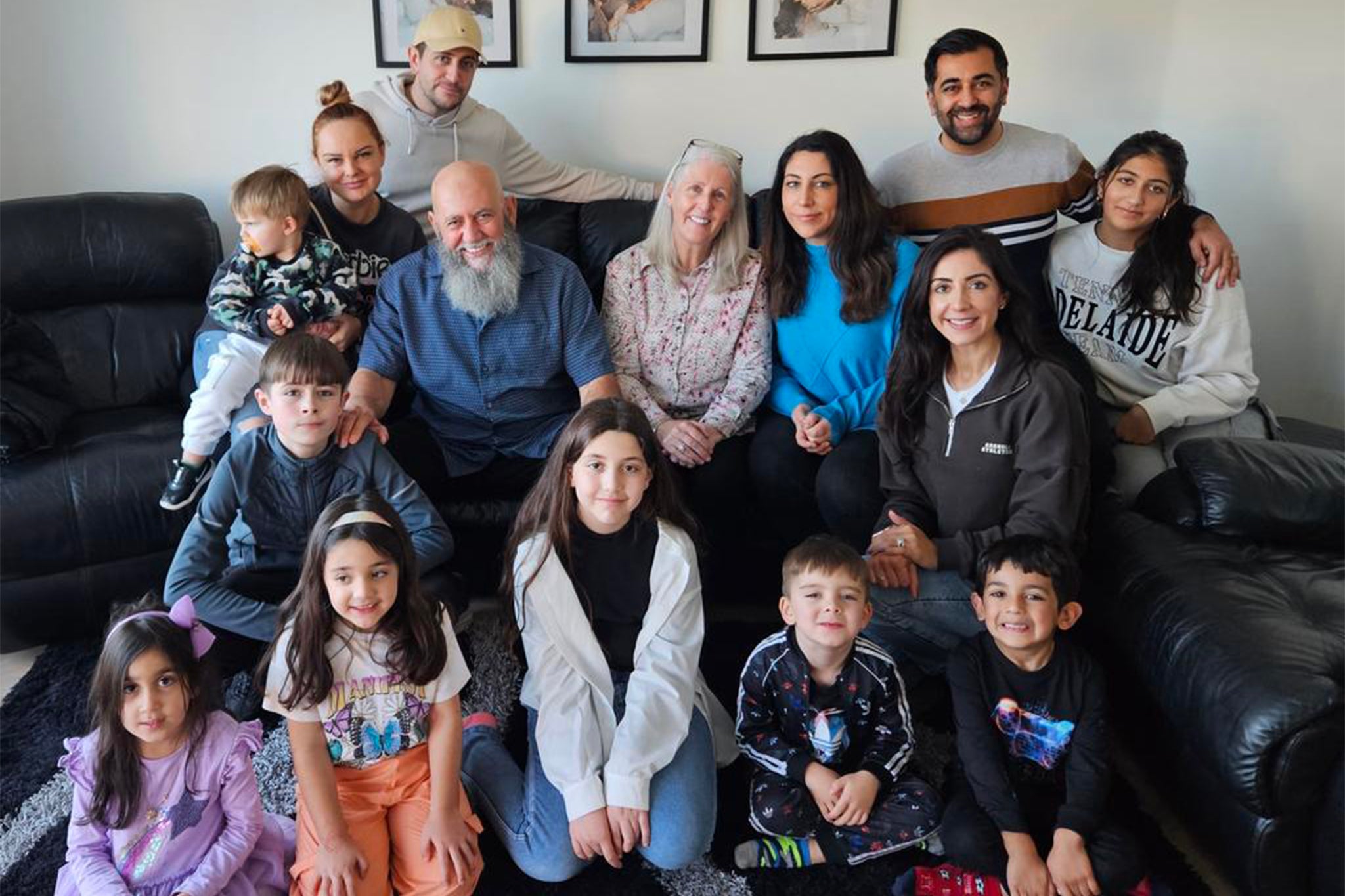Foreign nationals and wounded Palestinians leave Gaza through Rafah Crossing
Close to 100 people fled besieged Strip on Monday after evacuations resumed following two-day suspension
Dozens of foreign nationals and wounded Palestinians left Gaza through the Rafah Crossing on Monday after evacuations resumed following a two-day suspension.
The crossing reopened for a limited number of people with permission to cross into Egypt to escape Israel’s assault on the besieged Strip, Hamas-controlled authorities in the territory said.
About 80 dual nationals and 17 medical evacuees had left through Rafah by early Monday evening, with 48 aid trucks crossing in the other direction, according to three Egyptian security sources.

It comes after British nationals said they were turned away from the crossing on Saturday when it was unexpectedly sealed following an apparent row between Israel and the Palestinians over evacuating injured patients.
The Foreign Office then confirmed that the key border post remained closed to foreign nationals on Sunday.
The impasse in delicate diplomatic relations between Egypt, Israel and Hamas meant UK nationals waiting by the border checkpoint were stranded for a second day, despite UK hopes that the situation could be resolved.
The Independent has contacted the Foreign Office for an update as to whether Britons are among the foreign nationals who managed to flee the Strip on Monday and whether the crossing remains open on Tuesday.

Rafah is the only Gaza crossing that is not controlled by the Israelis and is currently the sole exit point for foreign nationals and entryway for aid.
Groups assisting people trying to leave through Rafah said they struggled to get hold of contacts on Sunday as Gaza experienced its third total communications blackout since the start of the war on 7 October.
Around 100 UK nationals have used the Rafah crossing to leave the besieged enclave since it opened to foreign nationals last week.
The total number the UK is trying to secure passage for is thought to be in the low hundreds, with as many as 200 British nationals and their dependents in Gaza registered with the authorities to leave.

Among those to have successfully passed through the crossing are the parents-in-law of First Minister Humza Yousaf.
They have arrived in Scotland safely after fleeing the conflict in the Gaza Strip, with SNP leader Mr Yousaf sharing a family photo on X, formerly Twitter, which included his wife Nadia, and her parents, Elizabeth and Maged El-Nakla.
It comes as Support Families In Gaza, a group assisting those on the ground in the territory, said some British citizens are facing the “excruciating” prospect of leaving without their family members as the Foreign Office has left those without UK passports off the safe passage list into Egypt.
Group spokesperson Louise Harkin said: “Gaza is currently the least safe place on the planet, almost 10,000 people are confirmed dead, almost half of whom are children, yet the government now wants to separate British children from their mothers and families.

“We call upon the government to allow British citizens to bring their families with them.”
The FCDO said people who require a visa will need one in advance of travel to the UK, including dependants of British nationals, such as spouses, partners and children under 18.
The fighting in the Israel-Hamas war has continued into a fifth week, with the violence having been ignited by the Palestinian militant group’s bloody raids that killed 1,400 people and saw about 240 people taken hostage.
In retaliation, Israel has pounded the 25-mile Strip with air strikes and sent ground troops into the north of Gaza in a bid to crush the territory’s rulers.

The continued incursion and bombing come despite appeals from the likes of the United States and the UK for a suspension of the fighting to get aid to desperate civilians.
Before the communications outage on Sunday, Palestinian health officials said Israeli warplanes struck two refugee camps in central Gaza, killing at least 53 people and wounding dozens.
The Palestinian death toll surpassed 10,000 on Monday, the Health Ministry of the Hamas-run Gaza Strip said, a number likely to rise as Israeli troops advance into dense, urban neighbourhoods. The ministry does not distinguish between fighters and civilians. Some 1,400 Israelis have died, mostly civilians killed in the initial incursion by Hamas that started the war.
Labour’s shadow defence secretary John Healey said there was a “danger of Israel going too far” in its retaliation and spoke about the need to better “protect innocent lives”.

He said Labour continued to support the UK government’s position of pushing for a pause in the fighting and was not calling for a ceasefire, despite pressure mounting internally for leader Sir Keir Starmer to do so.
The soaring death toll in Gaza has sparked growing international anger, with tens of thousands taking to UK streets on Saturday to demand an immediate ceasefire.
The Metropolitan Police said a total of 29 people were arrested in London, including for inciting racial hatred, other racially motivated crimes, violence and assaulting a police officer.
Mr Dowden expressed his “grave concerns” that a pro-Palestinian protest on Armistice Day on 11 November could spill over into “violence and instability” while commemorative events are taking place in central London.
On Sunday, pro-Israel demonstrators joined a vigil in Parliament Square to call for the immediate and unconditional release of all hostages taken by Hamas. Organisers arranged for a display with heart-shaped balloons attached to pairs of shoes to represent those who were taken, along with pictures of the victims.
Bookmark popover
Removed from bookmarks